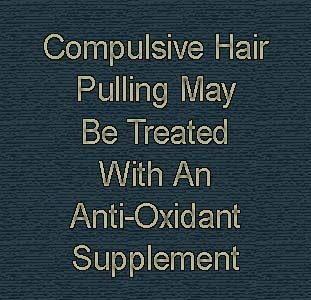
Trichotillomania is an impulse control disorder. Patients suffering from this disorder may be overcome with an uncontrollable urge to pluck at their own hair, e.g. scalp, eye lashes, eyebrows, etc. The people suffering from this condition may often pull their own hair to the point of noticeable empty patches. Apparently this disorder mostly affects women more than men.
Lead investigator, Jon Grant, MD, JD, associate professor of psychiatry, University of Minnesota, says, “Trichotillomania is compulsive in the sense that people can’t control it. People feel unable to stop the behavior even though they know it is causing negative consequences. Some people don’t even know they are doing it.”
For the purpose of better evaluating this criterion, around 50 such patients were analyzed for a period of about 3 months. These patients were believed to have an average age of about 34 years. Half of these patients were believed to have been given N-Acetylcysteine, while the rest were on placebo. Evidently, they were daily given a 1,200 mg dose of this amino acid for a period for about 6 weeks. This dosage was increased to 2,400 mg/day for the remaining period of the study.
It was observed that almost a little over 2 months of this supplement had markedly resulted in significant improvement. More so, after the completion of the study, more than half of the patients reported to have felt an improvement in their condition and there seemed to be reduced hair-pulling. On the other hand, only about 16% of the patients in the placebo group had allegedly reported of experiencing less pulling.
“These are people who have tried all kinds of things that have never worked. The reality is that if you pull hair and it is on a noticeable part of the body, people are really disabled by this. It’s not easy to go out in public if people are noticing your bald spots. Self esteem is a huge problem. This supplement may offer hope,” says Grant.
Apart from its findings, this study is also believed to be crucial for another reason. It is presumably one of the first studies on compulsive disorder to have focused on lowering glutamate level in the patients’ brain, instead of the level of serotonin, to prevent their risky behavior. Glutamate level is noted to be a chemical which elicits excitement, whereas serotonin is a naturally occurring compound which was earlier often associated with compulsive disorders. N-Acetylcysteine is believed to influence the glutamate level in certain areas of the brain, thereby reducing the occurrence of harmful behavior in the patients suffering from this disorder.
These findings have been published in the Archives of General Psychiatry.
